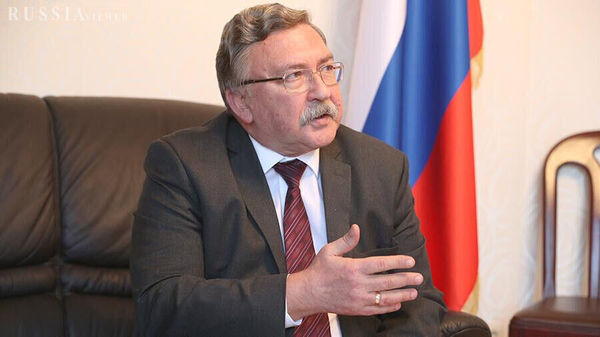Mikhail Ulyanov, Russia's representative to the International Atomic Energy Agency, said that the United States and the European Troika (France, Britain, and Germany) have politicized Iran's nuclear program.
According to Ashura News, citing IRNA, Ulyanov criticized the positions of the European and American troika towards Iran in an exclusive interview with Press TV, stressing that the United States and European countries are harming diplomatic efforts in the Iranian nuclear issue.
He expressed regret and added that they have politicized the issue and are constantly taking steps that worsen the situation.
Iran and the United States have held five rounds of indirect talks on Tehran's nuclear program since the re-election of US President Donald Trump, who unilaterally and illegally withdrew from the nuclear deal (JCPOA) in 2018. While the sixth round of talks was scheduled for June 15, the talks were suspended due to the Israeli aggression against Iran.
The talks between the Islamic Republic of Iran and three European countries and the European Union after the aggression of the Zionist regime and the United States were held on September 25 in Geneva, the European headquarters of the United Nations, at the level of deputy foreign ministers and the deputy head of the European Union foreign policy.
Kazem Gharibabadi, Deputy Minister of Legal and International Affairs of the Ministry of Foreign Affairs, wrote in the X Network, explaining the results of these talks: Dr. Takht Ravanchi and I held another meeting with the political directors of the three European countries in Geneva. Both sides explained their views on Resolution 2231.
Emphasizing that Iran remains committed to diplomacy and a diplomatic solution beneficial to both parties, he said: It is time for the three European countries and the UN Security Council to make the right choice and give diplomacy time and space.
According to IRNA, based on the Iran nuclear deal known as the Joint Comprehensive Plan of Action (JCPOA) and Security Council Resolution 2231, the deadline for the expiration of some key clauses of the agreement (transition day) is coming in November. The three European countries that have failed to meet their economic commitments are now claiming that they still have the “unambiguous” right to reimpose sanctions because Iran has violated its commitments. This is despite the fact that Iran’s steps to reduce its nuclear commitments following the US withdrawal from the deal and Europe’s failure to compensate for the damages were declared to be gradual, monitored by the Agency and reversible.
The snapback mechanism was designed in a climate of distrust between Iran and the P5+1 group to ensure that sanctions relief would be reinstated if commitments were not implemented. This is despite the fact that the JCPOA was based on two balanced pillars: Iran’s nuclear commitments and the lifting of sanctions.
The US withdrawal in 2018, along with the return of sanctions and the policy of maximum pressure, in addition to Europe’s failure to deliver on its economic promises, has upset this balance for years.


Post a comment